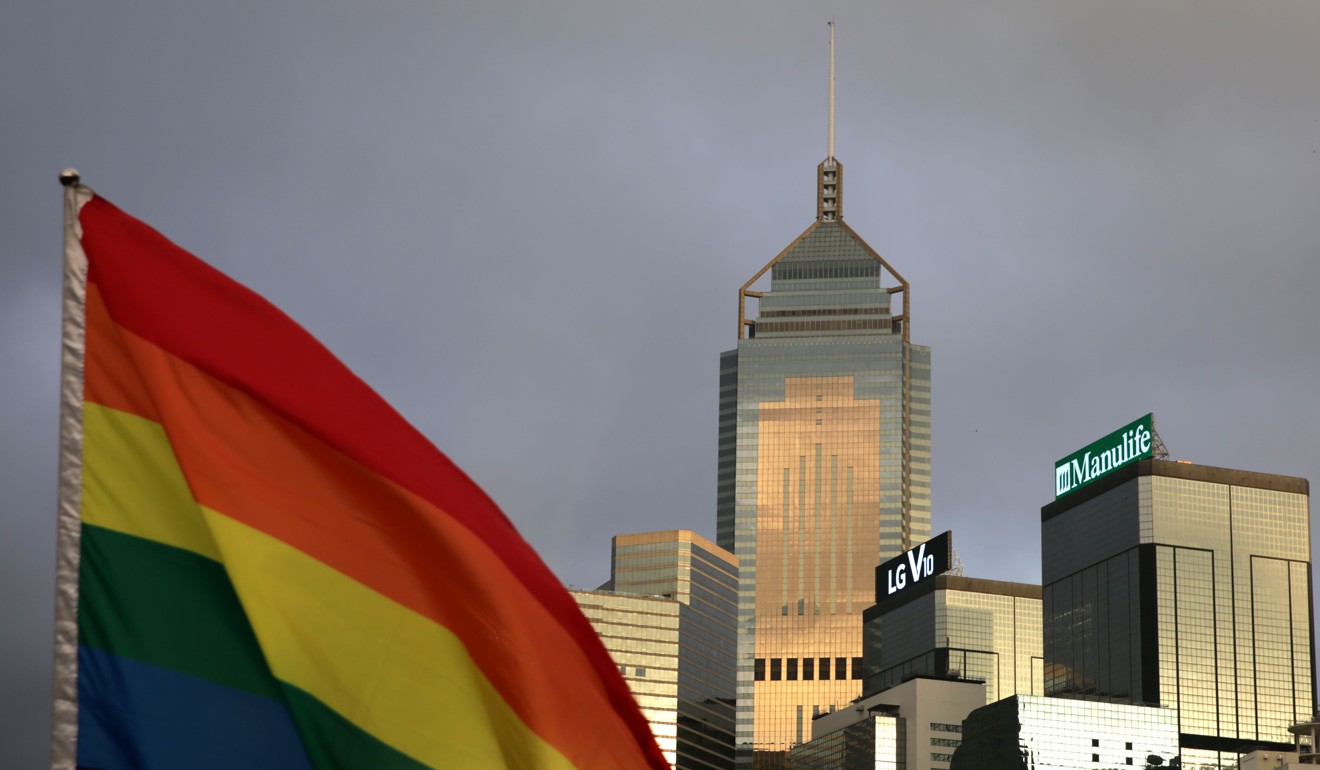
Transgender recognition in Hong Kong up for public consultation
Paper by government working group invites views on eligibility criteria and other considerations
A long-awaited public consultation on whether transgender people should be legally recognised in Hong Kong finally got under way on Friday, but it did not touch on same-sex marriage or other related issues.
The consultation, to run until October 31, was conducted by a cross-departmental working group led by Secretary for Justice Rimsky Yuen Kwok-keung.
The group was set up in 2014 after a landmark Court of Final Appeal ruling in 2013 granted a male-to-female transgender person, known as W, the right to wed her boyfriend. The court told officials to consider how to address problems facing transgender people by taking reference from overseas laws and practices.
“We stress that ... we are not dealing with issues of same-sex marriage or questions of discrimination [against sexual minorities],” Yuen said. “Those issues, we recognise, are important. But we also recognise that they are controversial and fall within the portfolio of other government departments or bureaus.”
The justice minister added that the final decision on gender recognition would not be completely based on public views.
Gender recognition is a very controversial issue and therefore we need to consult the community
“We recognise gender recognition is a very controversial issue and therefore we need to consult the community,” he said. “But ... it is equally important to study the matter from a legal perspective and from the public interest.”
The consultation paper asks whether a gender recognition system should be established, and invites the public to comment on the criteria for determining whether a person is eligible for gender recognition, based on factors such as residency requirements, minimum age, marital status and the number of years the person has lived in the preferred gender.
The paper also ponders the procedure for gender recognition, such as whether a person must undergo surgery to remove their genitals and construct new ones in order to be recognised, what kind of authority should have the power to determine applications for recognition, and whether overseas recognition decisions should be honoured locally.
The paper lists several overseas examples, such as Britain’s Gender Recognition Act of 2004, under which a judicial panel comprising members of the legal and medical sectors issues recognition certificates if applicants are clinically dissatisfied with their gender, have lived in the acquired gender throughout the preceding two years and intend to continue to live in the acquired gender until death. Surgery is not compulsory under the act.

The Court of Final Appeal described the system as a “compelling model” for Hong Kong.
One system includes stringent requirements such as surgery, medical diagnosis of gender dissatisfaction and exclusion of married applicants. Another one requires surgery but with fewer other restrictions. Still another allows a change of gender by an applicant’s self-declaration.
Joanne Leung Wing-yan, founder of Transgender Resource Centre and a transgender woman, called the paper well-researched and informative. But she believed public consensus was not essential to determine a position on human rights issues such as transgender recognition.
She said she wished different parties, especially anti-gay rights groups, could have more sincere and friendly exchanges relating to the consultation.
But Roger Wong Wai-ming, convenor of Family School Sexual Orientation Discrimination Ordinance Concern Group, said his members opposed any gender recognition after and different from what was determined at birth, even if the person had undergone surgery. He said the group would “actively respond” to the consultation and openly express its views.
Solicitor Michael Vidler, who represented W, said it took four years for the government to start the consultation. He claimed the move was “yet another attempt to delay doing something” to bring Hong Kong on par with countries that recognise lesbian, gay, bisexual and transgender rights.
Additional reporting by Jasmine Siu and Chris Lau

